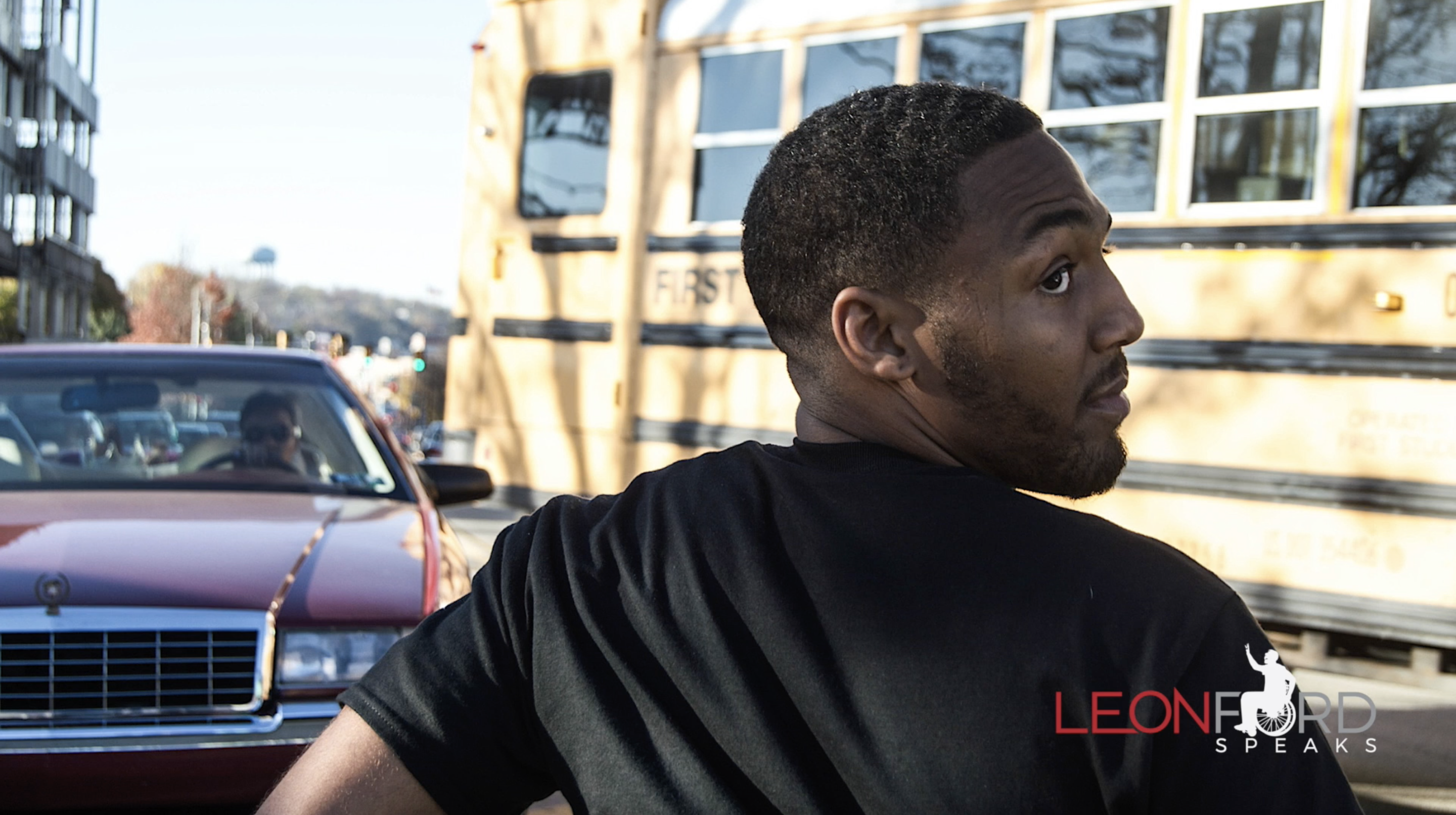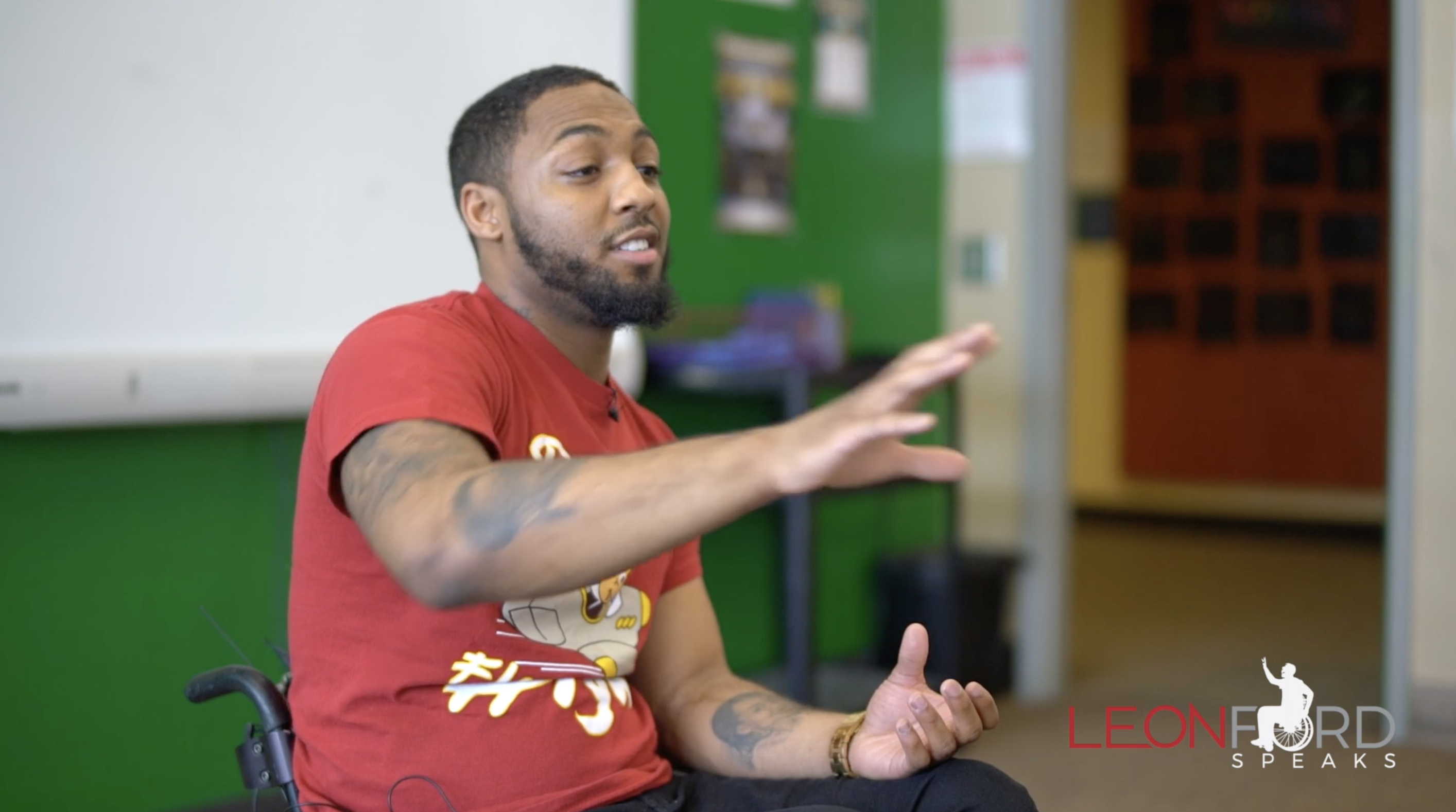
Who Are We if We Separate Ourselves from Our Past?
Leon Ford, a motivational speaker, social activist and author of “Untold,” recently spoke at Northwestern University. He is also a BMe Public Voices Fellow — BMe is an award-winning network of community builders known nationally for defining people by their positive contributions to society.
I was at a car wash not too far from my home in Monroeville, Pennsylvania, when I heard a man I didn’t know call out my name. He was driving a Mercedes, and when he stopped, he wanted to congratulate me on “winning” a settlement on my police brutality case.
I reminded him I hadn’t “won” anything; the pain I’d endured, the paralysis I live with daily, was not worth congratulating.
“But you’re rich now,” he exclaimed, proceeding to rattle off a list of black leaders he thought I should know. I listened politely, but I wasn’t particularly interested. He continued to push, then he told me to “stay away from n—–, they always want something!”
Confused, I asked him who and what he meant by that?
He responded: “You know, those fools in Homewood, Garfield, Larimer and East Hills,” rattling off Pittsburg-area neighborhoods where black people live, much like I’m sure folks in Chicago often do, since the city is so easily divided by race and residence, as research by The Metropolitan Planning Council shows.
I immediately told him those fools “are the people I love and trust. They’re my family and my community.”
Until that point, I hadn’t realized my new financial circumstances had put me in a different category for people like him. Every week, I hear someone who represents “black excellence” use some form of the same code: “Don’t be like them,” and much, much worse phrases I hear weekly — it makes me wonder how did black excellence become defined by wealth and materialism, and black struggle associated with shame?
As a black man who has survived an incidence of police brutality that left me in a wheelchair at 19, I understand the power of resilience. I know personally we cannot afford to erase our struggle — from our initial enslavement, to Jim Crow, to the mass incarceration epidemic and quest for education access at every level, mental health treatment and more, any attempt to forget our historical struggle won’t erase it from our DNA. Without struggle, there would be no excellence. To truly celebrate who we are, we need to know where we’ve been and how we got here.
That man represented a vast group of middle-class black people who have embraced a troubling definition of success. Black professionals tend to leave their communities as they climb the ladder, leaving few positive role models for the youth. Andrew Wiese, author of “Places of Their Own” writes: “Between 1960-2000, the number of African-Americans living in suburbs grew by approximately nine million.” The common theme of every upward mobility program in urban communities is “I’m trying to get out of the ‘hood.”
In Langston Hughes’ “The Negro Artist and the Racial Mountain Top,” he describes a black middle-class where blackness is rejected, and the ideal is to be as “white” as possible: The book was published in 1926. Almost 90 years later, the black middle-class still seems to subconsciously hate their blackness, as evidenced by the man who wants me to leave my own neighborhood.
To be sure, even black middle-class families are feeling squeezed, especially in cities like Chicago, which is experiencing an exodus. The city has experienced a 28 percent drop in black population, and historic black communities like Englewood, West Englewood and Austin are dealing with violence while managing change.
Great Migration families heading back South.
Black excellence is just as American as the American Dream, and Black struggle, resilience and history are also woven into America’s fabric. For African-Americans to truly celebrate our excellence, we need to be honest about our past, wherever we live; we have to acknowledge the political, economic and historical context of the black experience in America, which still carries a legacy of trauma.
There are children counting on our honesty because we are a representation of who they are and could be. Let’s show them how we love ourselves.
This is a story about the Community Safety and Peace strategy of the Partnership for Safe and Peaceful Communities.


